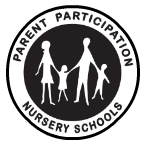"Faith is taking the first step even when you don't see the whole staircase."----Martin Luther King Jr.
Predict: to forecast.
This week, our children worked quite a bit on predictions:
Will the rock float, why?
which car will go faster, why; if we change the height of the ramp, which will go faster, why?
the bear is tying a spoon to the end of his arrow, why?
Asking children 'why', or "what do you think...", at the end of your sentence, is one of the best ways to encourage your children to think about how things work, and they begin to form hypothesis, which leads to problem solving.
We are very used to them asking US why, now it is time to turn the tables.
When they ask you why, you turn around and ask THEM why, what do they think? It is time to stop answering questions for your children, and to get them to thinking about how to answer their own questions.
These conversations lead to such opportunities for children to be creative, thoughtful, problem solvers, and for you to plant new seeds of information in their minds. Think about Steve Jobbs, Hewlett Packard, Mark Zuckerberg, ......they were/are problem solvers. They asked why, over and over again. They took things apart and put them back together again to understand how things work. They did not rely on others to give them the answer or to solve their problems.
There have been many recent articles talking about the importance of play and how play teaches children to problem solve, experiment and discover, without the interruptions of adults and 'rules'. In fact, a question that is being asked of interviewees by top companies is "Tell me what you played when you were growing up."
So, the next time they ask you why?, ask them what they think, sit back, and listen to the world open to new ideas!
Teacher Sharon Malone is the Teacher and Director for SJPPNS.
After experiencing SJPPNS as a participating parent, Sharon realized her passion for children and the importance of the education of young children. Sharon has a BA degree in Art History and a Directorship Certificate in Early Childhood Education. Sharon is also a certified Music Together teacher.








